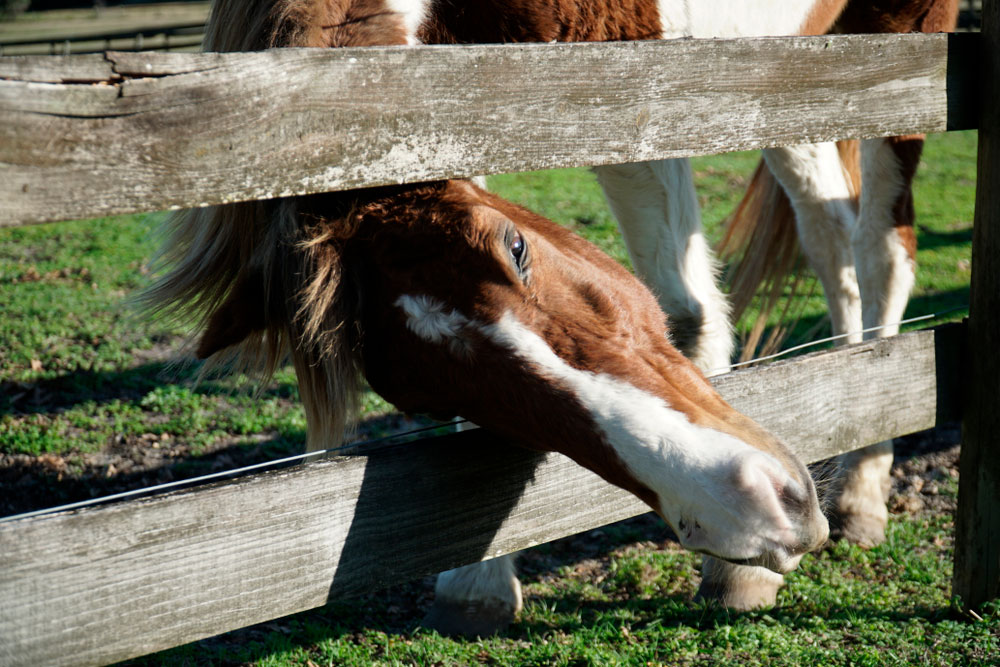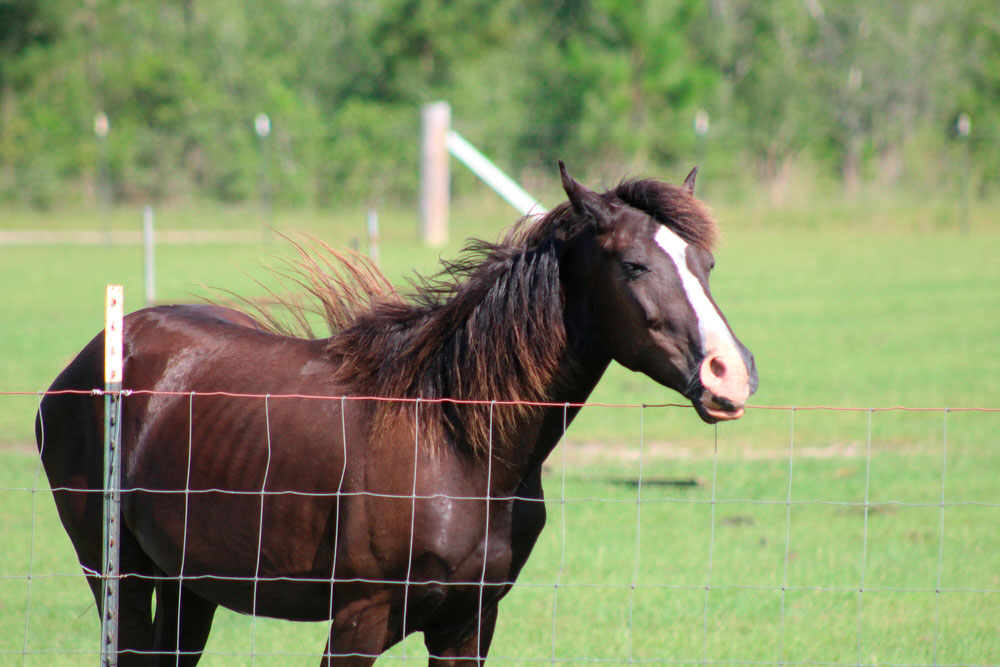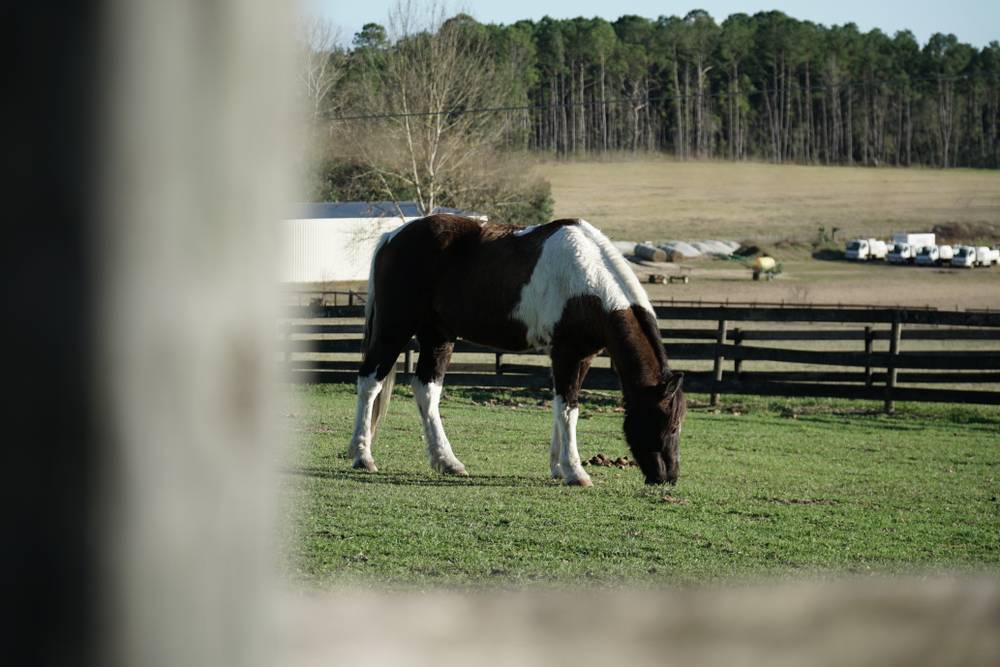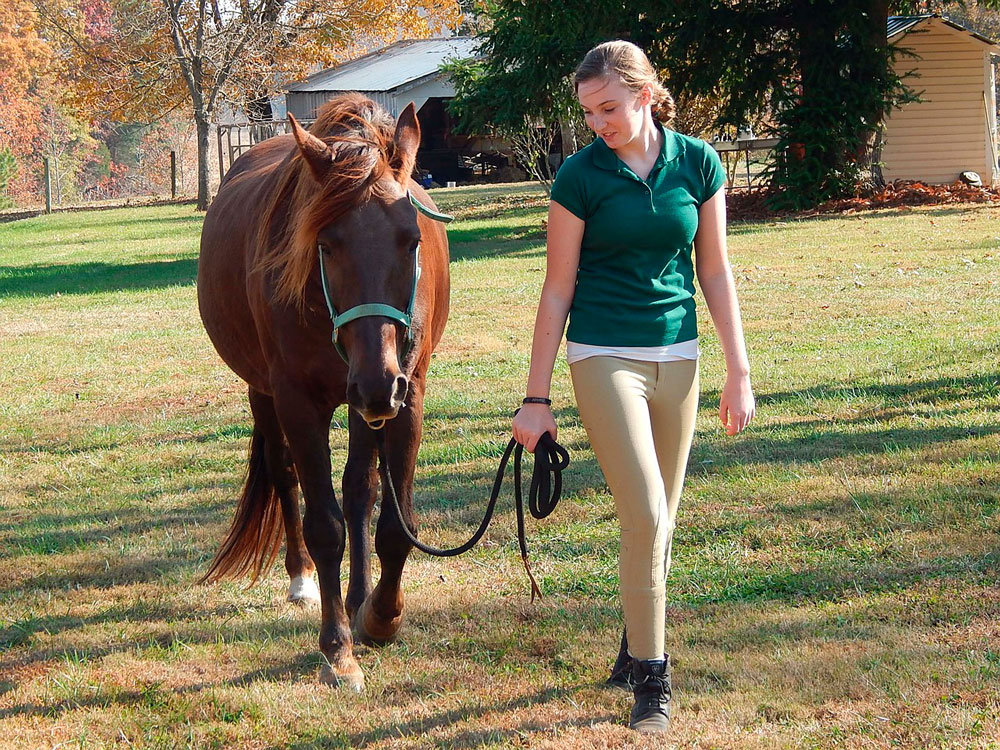The Tennessee Walker Horse is a breed of horse that is renowned for its smooth and easy-to-ride gait. This breed is believed to have originated in the southern United States, particularly in the state of Tennessee, where it gets its name. This is a versatile and intelligent animal that can excel in various disciplines.
Here’s a detailed overview of the horse breed for your consideration. Let’s check the Tennessee Walking Horse temperament, conformation, and price.
What Is a Tennessee Walking Horse?
The Tennessee Walking Horse (Tennessee Walker Horse) is derived from the southern United States. It’s a popular horse breed famous for its four-beat sharp movement. The equine is the official state horse of Tennessee. The average price for a Tennessee Walker ranges from $1,000 to $5,000.

Tennessee Walking Horse History
The Tennessee Walking Horse is the result of crossbreeding the Canadian Pacer and Narragansett Pacer. These horses were brought to Tennessee in the 18th century. The equines were bred in Middle Tennessee and were called Tennessee Pacers.
Many Tennessee Walking Horses were primarily bred to be used at farms and plantations. Since then, the range of uses has expanded. The Tennessee Walker is an all-purpose breed. It’s commonly used as performance horses in trail riding, eventing, pulling, and driving. You can see the equine on a show ring performing its smooth gaits. The Tennessee Horse stands out with its flat walk and sure-footedness.
Soon after, new horse breeds were added to the Tennessee Walker bloodline. They include the Thoroughbred, Standardbred, American Saddlebred, and Morgan Horses.
The horse named Black Allan was born in 1886. The equine became the foundation sire of the Tennessee Walking Horses. There was another famous equine born in 1904 from Black Allan’s line. It was Roan Allen – best known in horse shows due to its ambling horse gaits. Later on, other gaited horses became popular in a show ring.
In 2000, the Tennessee Walking Horse was announced as the official horse of the state of Tennessee. The breed is one of the most common horse breeds in Kentucky. After the Thoroughbred and the American Quarter Horse. The equine is popular not only in the southern US but all over the states.
The Tennessee Walking Horse Breeders and Exhibitors’ Association (TWHBEA) is the oldest organization devoted to the horse breed. It was founded in 1935 in Tennessee. The TWHBEA registers about 15,000 new foals per year.

Tennessee Walking Horse Temperament
The Tennessee Walking horse breed is calm and docile. That’s an excellent horse breed for beginners. They are also used as a family companion. Tennessee Walking Horses crave to please their owner. They like getting enough attention from their horse owners.
Tennessee Walkers are great for riders of all levels. As the equines are patient enough to withstand an inexperienced horseman. No matter what your riding level is, don’t forget to wear safety equipment when mounting a riding horse. These are a riding helmet, gloves, and breeches.
Such sound horses are quite energetic and athletic. Once you build a strong relationship with your companion, you’ll have fun with your new friend.

Tennessee Walking Horse Breed Characteristics
The Tennessee Walker has a well-defined head with small eyes and a long neck. The ears are small and well-placed. The sloping shoulders and hips are long. The horse’s back is short but strong. The hindquarters are well-muscled and of a moderate thickness. The hind legs are slightly angulated.
The Tennessee Walking Horse height is 14.3 to 17 hands tall on average. The horse’s weight goes from 900 to 1,200 pounds. That’s an average weight. Unlike draft horses that weigh up to 2,000 pounds.
Tennessee Walking Horse Colors
Tennessee Walkers can be found in all solid colors. A few pinto patterns are also possible to occur. The common Tennessee Walking Horse colors include bay, chestnut, and black. You can also find cream, dun, and champagne Tennessee Walking Horses. Sabino, tobiano, and overo are the Pinto pattern found on Tennessee Walkers. These are white patches all over the horse’s solid color coat.

Tennessee Walker Gaits
So, what is a Tennessee Walking Horse gait? The Tennessee Walker features a unique running walk. It’s a natural four-beat horse gait that is similar to the regular or flat walk. But the running walk is impressively faster. Gaited horses perform a flat walk at 4-8 miles per hour. While Tennessee Walkers perform the running walk at the speed of 10-20 miles per hour.
Here is how the running walk is performed. The horse’s rear foot oversteps the line where its front foot goes. It overgoes 6 to 18 inches forward. That’s a long overstep that is loved in the Tennessee Walking Horse breed. Another distinguishing feature is that the equine nods its head while running walk.
According to the Tennessee Walking Horse Breeders’ and Exhibitors’ Association, the horse performs the flat foot walk and canter, apart from the running walk.
The flat foot walk (flat shod) is a vivid and long-reaching walk. It covers from 4 to 8 miles per hour. It’s another four-beat gait. Each foot hits the ground separately at a regular pace. The legs are raised laterally while walking. The right rear goes over the right front limb. And the left rear goes over the left front limb. Such an action is called overstriding. That is unique to Tennessee Walking Horses. As well as head nodding when walking. Both of the features are judged in competitions.
The canter is a natural smooth gait that makes the horse extremely comfortable to ride. The canter is a forward motion that is performed diagonally. Sometimes its canter is called the “rocking chair gait.” The right lead has the following order: left hind, right hind, and left front feet together, then the right fore leg. The left lead is the following: right hind, left hind, and right front feet together, then the left fore leg. When performing on a show ring, the equine goes from the outside to the inside of the ring.
Some owners tend to train their Tennessee Walkers to perform the stepping pace, rack, single-foot, and fox trot. Such horse gaits are allowed for pleasure riding. But you can’t perform them in the show ring.

Tennessee Walkers Performing the Big Lick
Tennessee Walking horses have gained notoriety for their use in horse shows to perform the “Big Lick.” This controversial practice involves the use of built-up pads, known as “stacks.” These pads are placed under the horse’s front hooves to exaggerate their natural gait. The use of these stacks has sparked debates about animal welfare and ethical practices within the equestrian community. The National Walking Horse Association (NWHA) and the United States Equestrian Federation (USEF) don’t allow this form of shoeing anymore.
The use of stacks is particularly controversial, as they can cause discomfort and even injury to the performance horse. These pads can be up to four inches in height and are often made of hard materials such as aluminum or plastic. They are designed to alter the horse’s natural gait, causing them to lift their front legs higher. This can lead to a range of health issues, including soreness, lameness, and joint problems.
The Tennessee Horse Protection Act
The process of “soring” is commonly used to enhance the horse’s gait. This involves the application of chemicals or other substances to the horse’s legs. This causes pain and irritation that encourages them to lift their feet higher. The use of soring has been illegal in the United States since the creation of the Horse Protection Act of 1970, but reports of its continued use persist.
While the use of stacks and other mechanical aids may enhance the horse’s performance in shows, the practice has been widely criticized for its potential impact on the horse’s welfare. Many equine welfare organizations, including the American Society for the Prevention of Cruelty to Animals (ASPCA) and the Humane Society of the United States (HSUS), have called for a ban on the use of stacks and other devices in horse shows.
Tennessee Horse Shows Regulating
The use of built-up pads and other mechanical aids has sparked controversy and debate within the equestrian community. To address these concerns, several organizations have been established. They aim to regulate show rules and ensure that horses are treated humanely and ethically.
One of the most prominent organizations is the National Walking Horse Association (NWHA). Founded in 1996, the NWHA is dedicated to promoting the welfare and humane treatment of Tennessee Walking Horses. They have established a set of guidelines for the training, showing, and judging of horses. They are designed to encourage natural gaits in flat-shod horses and discourage the use of mechanical aids such as stacks and chains.
Other organizations that regulate show rules for the modern Tennessee Walking Horse include the United States Equestrian Federation (USEF) and the Walking Horse Owners Association (WHOA). The USEF is the governing body for equestrian sports in the United States and oversees competitions across a variety of disciplines. They have established rules and regulations for horse shows, which include strict guidelines for the use of mechanical aids.
The WHOA is a membership-based organization that promotes the welfare and kind treatment of riding horses. They have established a set of strict rules for the use of stacks and other soring aids. They also provide education and support for members, including training clinics, seminars, and other events.

How Much Does a Tennessee Walking Horse Cost?
So, what’s the Tennessee Walking Horse price? A Tennessee Walker costs around $1,000 to $5,000. That’s an average price for a healthy and young representative of the breed. The price depends on the horse’s age, gender, color, level of training, and health conditions. The Tennessee Walking Horse may be considered the first horse for a beginner rider.
Some Tennessee Walking Horses may cost up to $20,000 and more. If you’re looking for an equine with a good pedigree and outstanding look, get ready to break your budget.
Search for an experienced equine for a rookie equestrian. It has to be familiar with riders and know what to expect from them. The horse should be already ridden under the saddle. Tennessee Walking Horses stand out with a calm temperament, which is a plus.

The Bottom Line of Tennessee Walking Horses
Tennessee Walking Horses are a superb horse breed that is ideal for riders of all levels. Horse owners are into the breed as the equine is docile with a calm tempo. The horse loves to get much attention, so you’ll have a good time with your equine for sure.
Such horses are quite versatile in use. They can be used for farm work and as a family pet. The Tennessee Walking Horse is a common member of showing and pleasure riding. The horse can be used in endurance riding as well. The Tennessee Walking Horse costs from $1,000 to $5,000. That is a reasonable price for a good-looking equine with a unique smooth gait.
